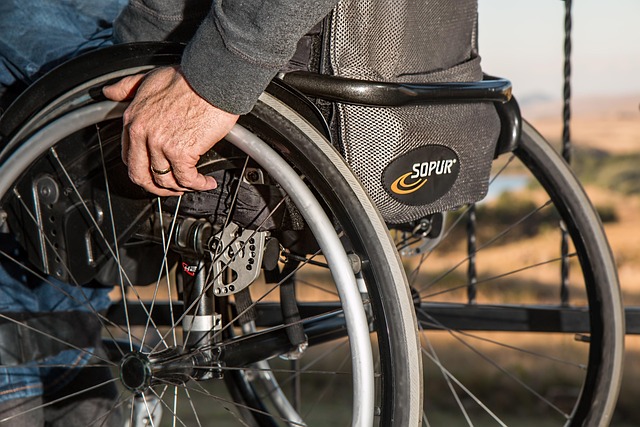Spinal cord injuries (SCIs) have severe physical, emotional, and financial consequences, often caused by negligence or defective products. An experienced attorney is crucial for navigating complex legal processes, understanding rights, gathering evidence, and advocating for fair personal injury compensation covering medical expenses, rehabilitation costs, and lost wages. Evaluating SCIs involves assessing severity of injury, medical needs, reduced quality of life, and financial burdens, with medical experts providing detailed reports. In cases like nursing home abuse or medical malpractice, legal action aims to identify liable parties and seek both financial support for victims and accountability from negligent entities. Retaining an attorney demystifies personal injury laws, helps understand rights, manages evidence collection, negotiations, or litigation, ensuring fair reimbursement for physical, emotional, and financial struggles caused by SCIs.
“Spinal cord injuries (SCIs) can lead to life-altering consequences, necessitating a comprehensive understanding of personal injury compensation. This article delves into the intricacies of pursuing claims for SCIs, guiding you through essential steps. We explore evaluating damage and determining fair compensation, offering insights into navigating legal processes.
Key areas covered include the fundamentals of spinal cord injury claims, strategies for assessing damages, and an overview of legal procedures, empowering individuals to pursue the personal injury compensation they deserve.”
- Understanding Spinal Cord Injury Claims
- Evaluating Damage and Determining Compensation
- Navigating Legal Processes for Personal Injury Compensation
Understanding Spinal Cord Injury Claims

Spinal cord injuries (SCIs) are severe and often life-altering events that can lead to significant physical, emotional, and financial consequences for victims. When a spinal cord injury occurs due to someone else’s negligence or as a result of a defective product, it paves the way for legal action seeking personal injury compensation. Understanding the nature of these claims is crucial for individuals who have sustained such injuries.
SCIs can result from a wide range of incidents, including car accidents, slips and falls, medical malpractice, or even exposure to toxic substances. Victims may face long-term challenges, such as partial or complete paralysis, chronic pain, and reduced mobility. In such cases, retaining an experienced accident attorney becomes essential for navigating the legal complexities involved in pursuing personal injury compensation. Legal representation can help victims understand their rights, gather evidence, and advocate for a fair settlement to cover medical expenses, rehabilitation costs, and lost wages associated with their SCI.
Evaluating Damage and Determining Compensation

Evaluating damage and determining compensation for personal injury claims involving spinal cord injuries is a complex process. The impact of such injuries extends far beyond physical pain and can include long-term medical needs, reduced quality of life, and significant financial burdens. Therefore, assessments must consider a range of factors to ensure fair and adequate personal injury compensation. This includes the severity of the injury, associated medical expenses, ongoing care requirements, loss of earning capacity, and pain and suffering. Medical experts play a crucial role in providing detailed reports on these aspects, which serve as the foundation for determining just remuneration.
In cases involving nursing home abuse or medical malpractice, the evaluation process becomes even more intricate. It’s essential to thoroughly investigate the circumstances leading to the spinal cord injury and identify liable parties. This may include suing the at-fault party, seeking compensation from insurance providers, or pressing charges against healthcare professionals or facilities responsible for the harm. The goal is to not only provide financial support to the victim but also hold accountable those whose negligence caused such devastating consequences.
Navigating Legal Processes for Personal Injury Compensation

Navigating the legal processes for personal injury compensation, especially after a spinal cord injury, can be a complex and challenging journey. It requires careful consideration and expertise to ensure fair and adequate reimbursement for the physical, emotional, and financial burdens imposed by such an injury. Victims often find themselves in a maze of paperwork, legal terminology, and procedural requirements.
This is where experienced legal professionals play a pivotal role. They guide clients through the intricate web of personal injury laws, helping them understand their rights and entitlements. From gathering evidence to negotiating with insurance companies or defending against defective products or employment disputes, these experts ensure that accident settlements are reached promptly and in line with the severity of the spinal cord injury.
Spinal cord injuries can have life-altering consequences, which is why seeking appropriate personal injury compensation is essential. By understanding the legal processes involved and evaluating the extent of damage, individuals affected by such injuries can navigate the system effectively. This article has provided an overview of the key steps, from claiming to determining compensation, ensuring that those with spinal cord injuries receive fair and just rewards for their suffering and any financial burdens they may face.





